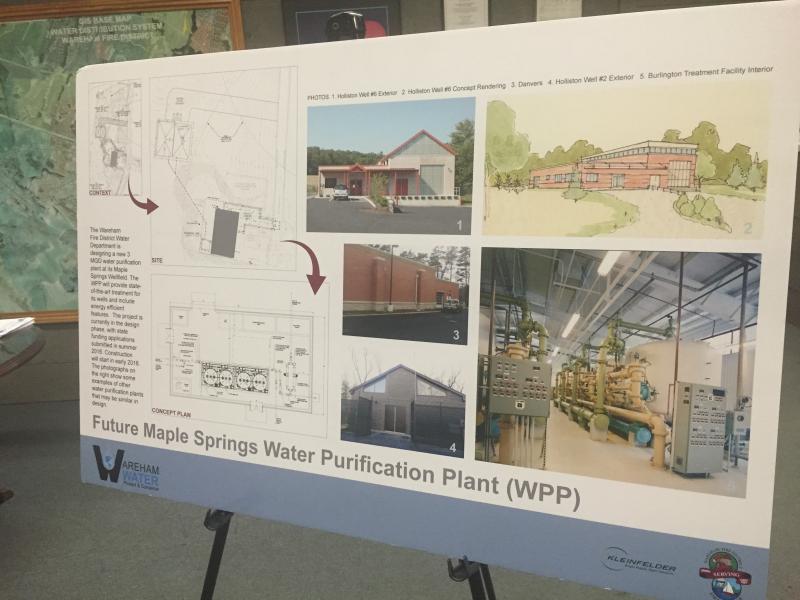Trump tariffs increase construction bids for Wareham water treatment plant
President Donald Trump-imposed tariffs on steel and aluminum are raising construction bids for the new water treatment plant. According to officials, the price hike is making the project's future uncertain.
“Our bids came back about $2 to $2.5 million over budget,” Wareham Water Department Superintendent Andrew Reid said. “And no vendor is guaranteeing their prices for more than 30 days.”
The treatment plant was approved by voters in April 2017 for $12.5 million in order to address high amounts of iron and manganese found in the town’s drinking water. The latter of which has been known to cause health issues, including neurological problems.
“We’ll know by the end of the first week of June if our rebids come back under budget,” Reid said. “But if they don’t, we can’t build the plant.”
Reid said the department’s only options then would be to ask voters for additional funds during the April annual meeting or do nothing.
“If we do nothing,” Reid said, “We’ll just be waiting for the state to issue us an administrative consent order.”
The Massachusetts Department of Environmental Protection has already expressed concern for the high levels of manganese in the Wareham water district. If these levels rise any higher, Reid says they’ll be forced to build a treatment plant.
“And with an administrative consent order,” Reid said, “we’ll be forced to pay a fine of up to $25,000 for each day we don’t comply.”
In other words, the Wareham residents won’t have a say in determining the cost of the plant.
Trump announced the 25 percent tariff on steel and the 10 percent tariff on aluminum March 1, 2018, meaning any items manufactured outside of the U.S. will now be significantly taxed.
“In November, we had an engineer’s estimate for a section of pipe come in around $300,000,” Reid said. “But at bid date, that same piece of pipe was $900,000.”
Reid said the Wareham Water Department has been working closely with a contractor to try and lower the cost of the treatment plant, but there are few alternative options.
One section of pipe required by the treatment plant is 60 inches in diameter. According to Reid, the widest steel manufacturers in Alabama and Texas will go is up to 36 inches.
“There just aren’t any steel manufacturers in the U.S. making large pipe,” Reid said. “Most of what we need comes from either Europe or Canada.”
Trump had announced at the end of April that he would postpone enacting the steel and aluminum tariff for certain countries, including Canada and the E.U., but that delay expires on June 1.
“When we started this process three years ago, we based our budget off the estimates we had at the time,” Reid said. “We never could have seen this coming.”












